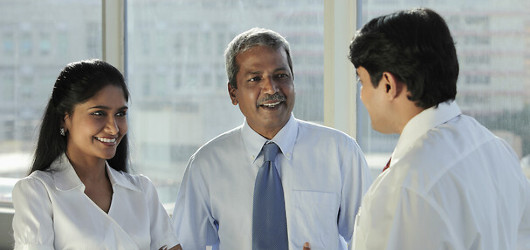Over recent periods, there has been a discernable shift in focus towards the concept of employee experience within organizations. This newfound emphasis effectively acknowledges the significant role employees play in the overall success of a business. Factors such as personalization, taking an all-encompassing view, embracing technology, and combining work-life activities form the basis of improving the employee experience.
Early work environments brought with them a one-size-fits-all approach, but the modern workforce demands personalization, translating to a deeper understanding of each employee’s needs and wants. In the modern work culture, personalization extends beyond mere socialization to create more engaging, integrated workplaces.
Holistic views on the employee experience capture the essence of nurturing an all-rounded workplace. A truly empowering employee experiences range from understanding employees’ needs to providing a supportive work setting, fostering trust, and promoting personal and professional growth. The holistic approach also appreciates the importance of routine feedback, flexibility in work configurations, and opening up career growth opportunities. Managers are not just supervisors but are facilitators who create the conditions for employees to thrive.
In the 21st-century workspace, technology is an inclusive phenomenon, acting as a vehicle for communication, learning, and collaboration. Businesses have to keep up with the technology-savvy younger generation that values digital tools as part of their everyday work life. By incorporating these digital apps and platforms, not only does it make tasks more efficient, but it also meets the expectations of the modern workforce.
Work style transformation has necessitated the evolving concept of work-life balance to work-life integration. Employees desire an amalgamation of their personal and professional lives. This aspiration requires businesses to accommodate flexible arrangements for working such as remote work and flexible hours. Such arrangements enable employees to lead balanced lives, enhancing their overall well-being.
In addition, skill development is crucial in the current workspace. Today’s employees demand continuous learning opportunities and personal growth, with skills considered the new “currency”. Workers seek meaningful work and clear avenues for career advancement. As such, the guiding motto is often ‘Unlearn, Learn, Relearn’, and organizations that embrace this will have the edge in attracting and retaining top talent.
Moreover, businesses now acknowledge the classical notions of diversity and inclusion as vital elements of a robust work environment. An inclusive work environment encourages diverse perspectives and experiences, promoting innovation and collaboration. Diversity is not just about attaining a set of quotas; it’s about fostering a culture where everyone feels valued and respected.
Feedback and recognition culture has been a transformative element in enhancing employee experience. The newer generations such as Gen Z value frequent feedback and acknowledgment for their work. Calibrating a culture that celebrates feedback and recognition can elevate employees’ morale and motivation.
There has been a significant evolution in the concept of employee experience over time. For instance, we’ve moved from seeking work-life balance to promoting work-life integration. The understanding of benefits has expanded to encompass all facets of employee well-being that include physical, mental, and emotional health.
Communication strategies have also moved from a top-down approach to open, regular and ongoing feedback. We’ve also seen a shift from role-based hiring to skill-based hiring, as employees are increasingly looking for career changes, not just job changes. It is also evident that the concept of diversity has expanded to mean overall inclusion – creating a culture where all forms of diversity are celebrated and every individual feels valued.
Yet another key shift is from power and hierarchy to participation, accountability, and a focus on continuous improvement. There has been an increasing emphasis on fostering a growth mindset that invites employees to learn not just from achievements but also from failures, criticism, and mistakes.
In light of these changes, it is clear that the modern employee experience is shaped by the needs and expectations of a new generation of workers. Companies that are adaptable and responsive to these changes will be well-positioned to attract and retain talented individuals, which in turn fuels their success.
In conclusion, employee experience is an influential determinant in the realm of commerce. Prioritizing employee wellness and satisfaction is not just an ethical obligation; it is a strategic direction that can help a company realize better engagement, talent attraction and retention, and overall performance improvements. As the saying goes, if you take care of your employees, they will, in turn, take care of your business.




